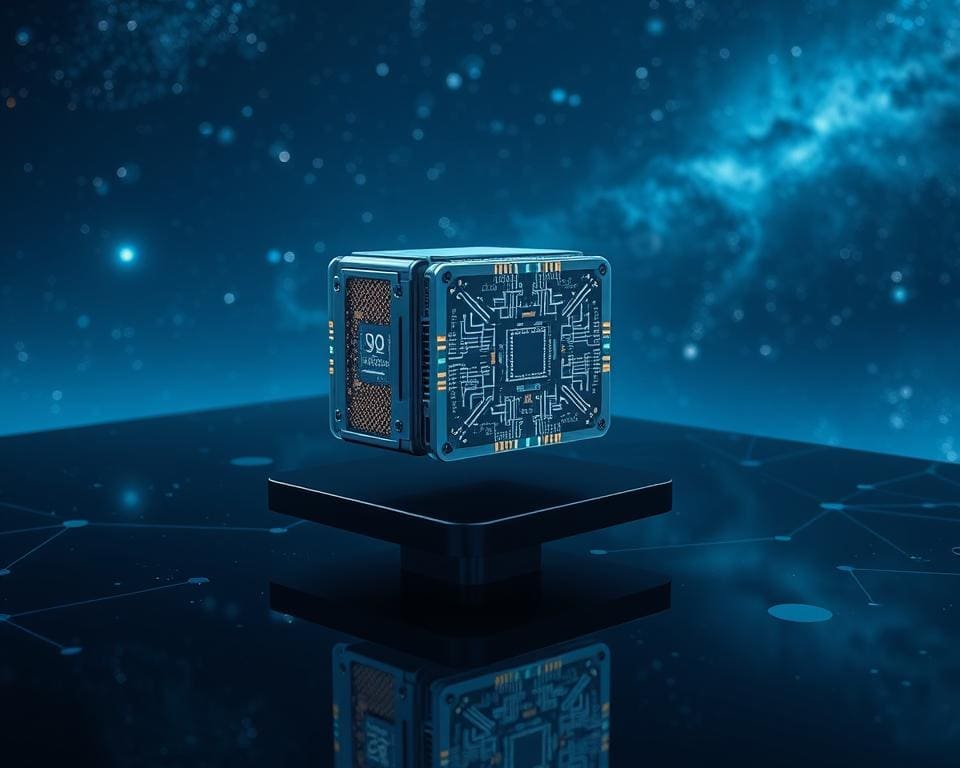The growing discourse around whether quantum computing will replace classical computers poses a fascinating inquiry into the future of computing. As digital transformation continues to reshape industries, the capabilities of quantum technology emerge as a potential game changer. This article seeks to explore the profound implications of these advancements and the role they may play in revolutionising our approach to computation. Understanding the strengths and limitations of both quantum and classical systems is crucial to envisioning a landscape where one may ultimately supersede the other.
Understanding Quantum Computing
Quantum computing represents a revolutionary advancement in the field of technology, moving beyond the limitations of classical computing. This innovative approach relies on quantum bits, or qubits, which enable new possibilities through the laws of quantum mechanics. By harnessing these principles, quantum computing promises to unlock unprecedented capabilities in various domains.
What is Quantum Computing?
At its core, quantum computing diverges from classical systems by using qubits instead of binary bits. Whereas classical bits exist in a state of either 0 or 1, qubits can occupy multiple states simultaneously due to a phenomenon known as superposition. This ability allows for vastly increased computational power, making it possible to solve complex problems much more efficiently.
Key Principles of Quantum Technology
Two fundamental principles that underpin quantum technology are superposition and entanglement. Superposition allows qubits to exist in multiple states at once, resulting in a rich computational landscape. Entanglement, on the other hand, links qubits so that the state of one directly influences the state of another, regardless of distance. These principles distinguish quantum systems from traditional computing paradigms, offering a glimpse into the future of computing.
Current State of Quantum Development
The current landscape of quantum development is bustling with activity, driven by key players such as IBM and Google. These companies, alongside numerous startups and research institutions, have made significant strides in refining quantum technology. Recent breakthroughs include achieving quantum supremacy and developing quantum algorithms that outperform their classical counterparts. This progress not only fuels excitement but also indicates the increasing viability of quantum computing solutions across various industries.

The Evolution of Computing
The fascinating journey of computing evolution highlights the remarkable advancements from classical computers to modern technology. Understanding this transition allows us to appreciate how far we have come and what lies ahead.
From Classical to Modern Computing
Classical computers, based on binary logic, provided the backbone of early computing. These machines operated on a straightforward principle of inputting data, processing it using algorithms, and outputting results. Despite their groundbreaking nature, classical computers faced limitations, particularly in terms of speed and problem-solving capabilities. The emergence of microprocessors marked a crucial point in this evolution, enabling smaller, more powerful devices that transformed personal computing.
Milestones in Computing History
Several milestones in computing history have significantly influenced the trajectory of technology. The introduction of the internet revolutionised communication and access to information, creating a global network for sharing ideas. Advances in artificial intelligence paved the way for machines to learn and adapt, fostering a new era of smart technologies. Each of these innovations not only propelled classical computing forward but also laid the groundwork for future developments in quantum technology.
Will quantum computing replace classical computers?
The ongoing debate about the future of computing continually raises the question: Will quantum computing replace classical computers? A critical examination of the advantages of quantum technology in relation to its classical counterparts provides insight into the potential shifts in the computing landscape.
Advantages of Quantum over Classical
Quantum computing offers numerous advantages that may revolutionise problem-solving capabilities. These benefits include:
- Exponential speed for specific types of computations, allowing quantum computers to solve complex problems in a fraction of the time required by classical systems.
- The ability to process vast amounts of data simultaneously, which enhances performance in fields such as cryptography, materials science, and optimisation.
- Utilisation of quantum bits (qubits) that can exist in multiple states, enabling a more complex problem-solving approach.
Limitations and Challenges of Quantum Technology
Despite its promising potential, quantum technology faces several limitations and challenges that hinder its widespread adoption:
- High error rates in quantum calculations due to noise and interference, demanding sophisticated error-correction methods.
- Issues of decoherence, where quantum systems lose their quantum behaviour, impacting their reliability.
- Significant costs associated with developing and maintaining robust quantum hardware and software, which can be a barrier for many organisations.
Comparing Quantum vs Classical Computers
The landscape of computing is evolving, and an essential part of this transformation lies in the comparison between quantum and classical computers. Understanding their performance metrics and practical applications helps to clarify their respective roles in today’s technological ecosystem.
Performance Metrics
When evaluating quantum vs classical computing, performance metrics play a crucial role. Key metrics include:
- Processing Speed: Quantum computers excel in executing complex algorithms at speeds unattainable by classical counterparts.
- Data Handling Capacity: Quantum systems can process vast amounts of data simultaneously, leveraging quantum bits’ ability to exist in multiple states.
- Energy Efficiency: While classical computers consume significant power for extensive computations, quantum computers offer a promising alternative with lower energy demands for certain tasks.
Use Cases for Each Technology
The practical applications of quantum and classical computers vary widely. Classical computers thrive in areas such as:
- General-purpose computing for businesses and everyday tasks.
- Data management and documentation processes across various industries.
- Software development and application support.
On the other hand, emerging areas where quantum computing shines include:
- Optimisation: Solving complex logistical problems.
- Crytography: Enhancing security protocols and encryption methods.
- Pharmaceuticals: Accelerating drug discovery and molecular modelling.
The Future of Computing
The landscape of computing is evolving at a remarkable pace, heavily shaped by advancements in quantum technology. As industries increasingly embrace the potential of quantum computing, the future of computing appears to be a compelling blend of classical and quantum systems. This hybrid approach not only addresses the complex challenges we face but also enhances the capabilities of traditional computing, exemplifying a harmonious coexistence.
In sectors such as healthcare, finance, and logistics, the integration of quantum technologies promises to drive significant digital transformation. For instance, optimising resource distribution in logistics or enabling real-time data analysis in finance could revolutionise decision-making processes and operational efficiency. Such advancements are set to fulfil the growing demands of modern society, ensuring that businesses and individuals alike are better equipped to navigate an increasingly complex world.
As we look ahead, the synergy between classical and quantum computing will not only define the future of computing but will also unlock unprecedented opportunities. The continued evolution of both paradigms will pave the way for innovative solutions that enhance our daily lives and push the boundaries of what is achievable, thereby creating a more connected and data-driven future.









